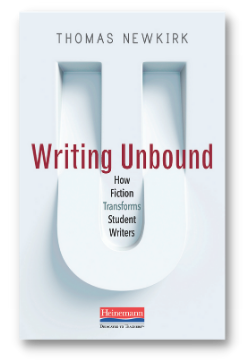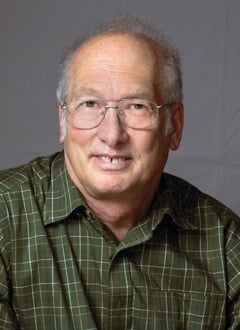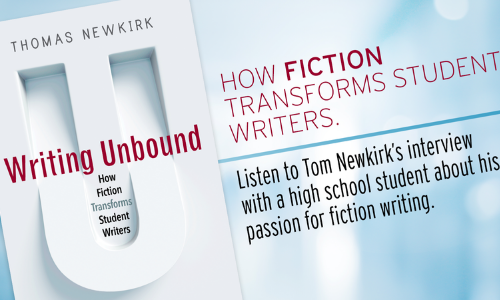
A confession. I am not the ideal person to explore adolescent fiction writing.
In fact, for years I shared the prejudices and reluctances that I have identified. To put it more bluntly I was a literary snob, priding myself on reading “good literature” and being able to distinguish it from beach books and other “trash.” I winced at reading the long fictional stories students wrote and agreed with many of my colleagues that students just wrote “bad fiction.” I was never a fiction writer myself, in school or after. I never immersed myself in fandom, never devoted myself that way, not even during the Harry Potter phenomenon. I would flunk any quiz on popular culture.
I am writing this book as an outsider—which, after all, is not a bad starting point, to begin in acknowledged ignorance. But I needed insiders, tour guides, to point the way—to explain the sources of their fiction writing, to describe the gratifications of this work. So I located young writers and writing teachers willing to talk to me. In some cases these writers attended the summer Writers Academy in Durham, New Hampshire. Others were recommended to me by teachers I had worked with. These students, let me emphasize, are not representative of all students; they are a subculture in schools, often feeling somewhat alone in their passion. But I believe that, as they make their case for fiction writing in this book, readers will sense the missed opportunity in schools where writing is tightly controlled. My interviewees had a lot to say about that! These writers sent me samples of their fiction, in some cases whole novels, which I read before interviewing them, some in-person at school and public libraries, others through the miracle of Zoom. In all I conducted approximately forty student interviews and fifteen teacher interviews, which form the core of this book.
The student interviews vary in length from twenty to fifty-eight minutes, and they are built around several questions or invitations that were consistent:
- Tell me about your history as a fiction reader or writer?
- What is the attraction of fiction?
- How is writing fiction different for you than nonfiction?
- If you were to take me inside your head while writing fiction, what would I see?
- Do you have the opportunity to write fiction in school? If not, why do you think that is?
- What is the best help you received from a teacher about writing fiction?
- Do you have readers? What do you find helpful in their response?
- What advice would you give to students who want to write fiction?
- What advice would you give to teachers to be good teachers of fiction writing?
I also posed questions related to the particular piece of fiction they shared with me. As much as possible, I wanted the feeling of an author interview that you might hear on public radio.
In my interviews with teachers, I was interested in the place of fiction writing in their schools, particularly how they justified it, how they framed assignments, their role as reader and evaluator. I was interested in how they managed plot and length, which to me would be mind-boggling when students wrote novels, as they did in one classroom. I listened to the interviews multiple times, noting recurring themes or similar points that students and teachers brought up. Like any qualitative researcher I was looking for patterns. For example, I found that students often spontaneously brought up their dislike of the ways in which rubrics are used, and I began to pay special attention to the reasons why. I try to bring in these comments using a “theme and variation” method, showing multiple instances of student comment on a topic. This is, in a way, a check against highlighting the interesting but outlier response of a single student.
I also tried to link individual students’ comments to their own fictional work. As an example, I came to see the deep pleasure many of them had in depicting “action” and I would make note of where they did that in their writing. I came to deeply appreciate my tour guides in this project, and I hope that I do justice to their insights and creative work.
One day during my high school years, say 1962, I was home sick, and my dad passed on to me a Signet paperback with a picture of a young man wearing an odd red hat and with a similarly odd title, The Catcher in the Rye. I’d never heard of the book. I recall reading aloud the opening and coming to “all that David Copperfield kind of crap,” thinking this is a book written for me, in my language—the first time I ever felt that way. Now, of course, the book is standard school reading, rarely challenged anymore, and I suppose students are writing the same “essays” about it that Salinger mocks in the novel.
All of which raises the question of what happens when any art form or media becomes part of school. Does it lose its edge, become domesticated? Is it converted into a moral tract with “themes”? Is rap in the classroom really rap? This is a question for fiction writing—does it lose its edge, the personal ownership and freedom that writers feel as they compose for no grade, no teacher? While I recognize that this is a danger, the history of the English curriculum deals with the shifting boundary between the popular and the academic. Anne Gere (1994) has written extensively of the “extracurriculum”—informal reading and writing groups—that have progressively become part of the curriculum (for a long time American literature was not taught—and up until the 1960s it couldn’t count for the major at my own university!). Women’s studies, film studies, courses in graphic novel, multimodal composing, even creative writing—all began outside the established curricular grid. Schools and universities gradually—and sometimes grudgingly—brought them in, to maintain relevancy and attract students.
It simply makes no sense to deny students the opportunity to write in the genres they choose to read.
Why in the world should we undermine our efforts to engage students with writing? If reading fiction is humanizing and valuable—the same (and perhaps a stronger) case can be made for writing. Enough. Time to dive in.
To learn more about Writing Unbound, visit Heinemann.com.

Thomas Newkirk is the author of numerous Heinemann titles, including Embarrassment, Minds Made for Stories, The Art of Slow Reading, The Performance of Self in Student Writing (winner of the NCTE's David H. Russell Award), and Misreading Masculinity. For almost three decades, Tom taught writing at the University of New Hampshire where he founded the New Hampshire Literacy Institutes, a summer program for teachers. In addition to working as a teacher, writer, and editor, he has served as the chair of his local school board. Follow Tom on Twitter @Tom_Newkirk.



